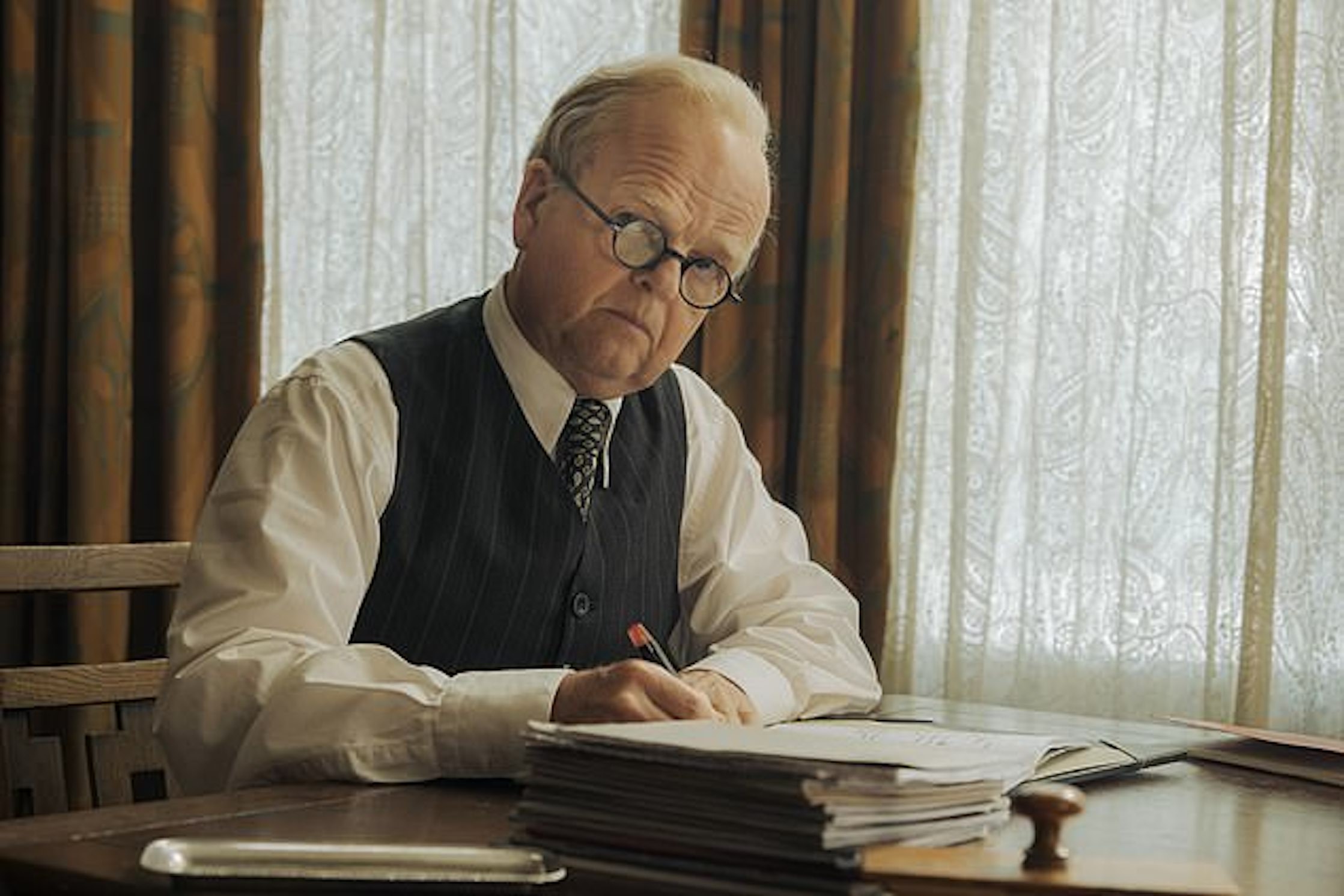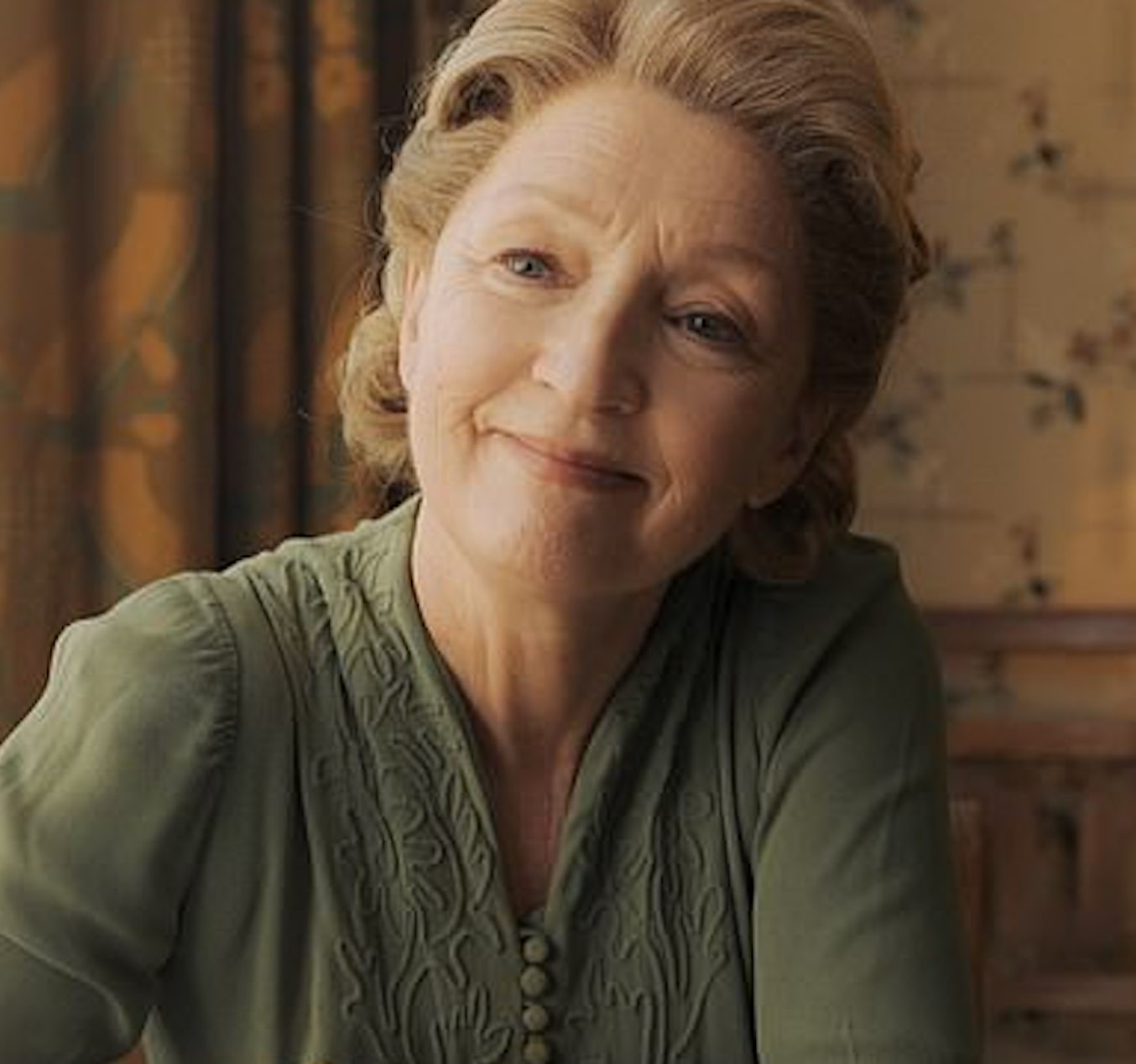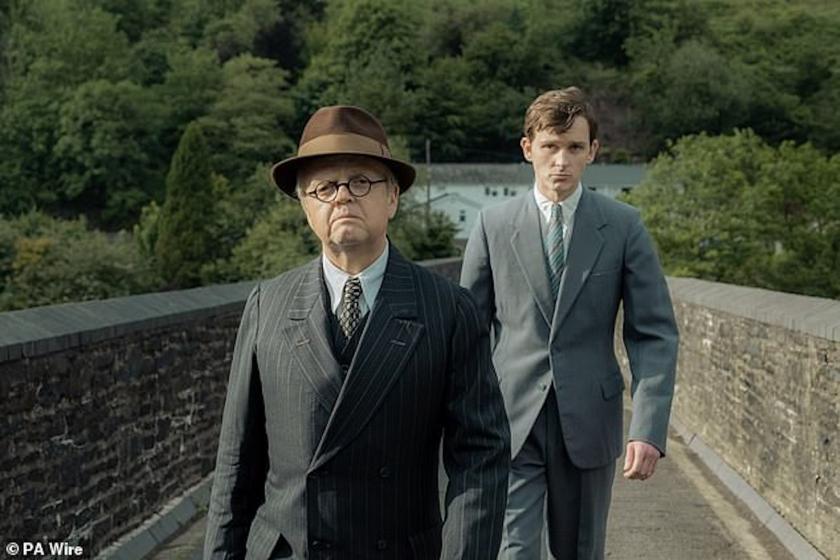Many know that the actor Richard Burton began life as a miner’s son called Richard Jenkins. Not so many are aware of the reason he changed his name. This film directed by Marc Evans explains how it came about.
PH Burton (played by Toby Jones) was the teenage Richard’s English teacher in Port Talbot, a wannabe playwright who, on the brink of fame when the war broke out, was deployed as a teacher instead. His tutelage turned the raw material that was Richard (Harry Lawtey) into the 1950s stage star with the burnished voice.
The name change was suggested by an RAF friend of PH’s who was in charge of a scholarship scheme for young airmen that sent them to study at Oxford for six months. This move was partly to allay suspicions of what would have then been judged an illicit relationship between PH and Richard, who had begun to iive in the same boarding house, and to underline PH’s status as Richard's legal guardian. It also helped disguise the young actor's mining-town background, which also threatened his progress. He duly won his short stay at Oxford in 1944. The film is coy about the exact nature of the bond between PH and Richard, which begins as the usual rapport between a sticklerish teacher and a rough-diamond pupil. When Richard gets drunk and accuses PH of ulterior sexual motives, PH is appalled and hurt, as Richard will be when he sobers up.
The film is coy about the exact nature of the bond between PH and Richard, which begins as the usual rapport between a sticklerish teacher and a rough-diamond pupil. When Richard gets drunk and accuses PH of ulterior sexual motives, PH is appalled and hurt, as Richard will be when he sobers up.
Although Mr Burton's style is conventional, it is so engagingly performed that its oversights seem less important than its achievements. Chief among these is the tracing of the origins of that famous voice. Lawtey starts from a low base. When Richard is asked by PH to recite the “Oh for a Muse of fire” prologue from Henry V, he sounds like a whiney lad from the valleys reading out a shopping list.
Under PH’s no-nonsense guidance, Richard's “yer” turns to “here”, “praps” to “perhaps”. He is made to stand alone on a local hill, screaming until he has learnt how to use his diaphragm to do it without hurting himself. He plays Professor Higgins with PH’s local drama group, to great acclaim. Ironically, his first big break comes via a call for Welsh actors by Emlyn Williams, mounting a production of The Druid’s Nest in Cardiff.
We then zoom on to Richard’s big moment, playing Prince Hal at the Shakespeare Memorial Theatre in Stratford in 1951. His alcohol consumption and smoking are already out of control, and his arrogance, too. But now here is that voice, a perfect imitation of the real Richard Burton’s – almost too perfect, at times.
Lawtey is a natural when speaking Welsh and Welsh-accented English at home, but in the later stages of the film, his performance becomes more of an impersonation, as if he has spent hours perfecting the star's orotund vowel sounds and meaty delivery. We aren’t shown what changed his acting technique, and are left to assume that leaving the Valleys helped ground his English accent, while the smoking and drinking did the rest.
What Tom Bullough and Josh Hyams's intelligent script suggests, though, is that Richard’s breakthrough Prince Hal was a veiled replay of his relationship with his own old companion, PH, whom he viciously attacks and calls a nobody when PH visits him in Stratford. As we see Hal progressing to his coronation in Henry IV Part 2 and rejecting the “old knight” Falstaff en route, we see how life has informed Richard’s art, not just the voice. Hal has become King Henry V, Richard has become the acting profession’s top young star, who is trying to cast off his old mentor.
 Jones is on top form here, projecting an interiorised melancholy that seeps into his eyes. On walks, he trots briskly forth, leaving Lawtey several paces behind him. He is a dapper, cultured man with a radio-drama directing career, but one who needs a new passion in his life. Guiding him is the sage Ma Smith (Lesley Manville, pictured right), his landlady, with whom he listens to Elgar of an evening on the Third Programme.
Jones is on top form here, projecting an interiorised melancholy that seeps into his eyes. On walks, he trots briskly forth, leaving Lawtey several paces behind him. He is a dapper, cultured man with a radio-drama directing career, but one who needs a new passion in his life. Guiding him is the sage Ma Smith (Lesley Manville, pictured right), his landlady, with whom he listens to Elgar of an evening on the Third Programme.
Gathered in the cast are the current cream of Welsh acting: Daniel Evans as a tetchily thespy Anthony Quayle, the actor-director playing Falstaff; Aimee-Ffion Edwards as Richard Burton’s beloved sister Cis, and Aneurin Barnard as her miner husband, already showing signs of miner’s lung; and, particularly excellent, Steffan Rhodri is “Daddy”, who moves from the mine to the Miner’s Arms at 5pm. There he displays a love of performative storytelling that indicates exactly where his son got his theatrical talent from, as well as his roaring-boy tendencies.
This is a simple film, with its painted Port Talbot backdrops and low-budget period sets, but it’s compellingly performed. Lawtey is so much more open here than he was as Industry's squirrelly, ambitious Robert, another working-class boy who went to Oxford. He is funny, affable and moving, too, as in the scene when Richard lists his options for leaving his sister’s home but realises, “Nobody wants me”, and highly credible as the future great actor who genuinely loved literature and read Joyce while fire-watching, The relationship we see between him and PH is heartfelt, whatever it actually was or wasn’t.
One of the saddest moments comes when we see Richard onstage performing the speech in Henry IV Part 1 in which Hal soliloquises about what's behind his strategy of getting drunk in Eastcheap taverns. “So when I this loose behaviour throw off,/…By how much better than my word I am,/By so much shall I falsify men’s hopes.” Sadly for Richard Burton, the loose behaviour would become standard and proved impossible to throw off.













Add comment